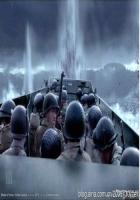In the towns which, in the Middle Ages, did not derive ready-made from an earlier period but were formed anew by the serfs who had become free, each man's own particular labour was his only property apart from the small capital he brought with him, consisting almost solely of the most necessary tools of his craft. The competition of serfs constantly escaping into the town, the constant war of the country against the towns and thus the necessity of an organised municipal military force, the bond of common ownership in a particular kind of labour, the necessity of common buildings for the sale of their wares at a time when craftsmen were also traders, and the consequent exclusion of the unauthorised from these buildings, the conflict among the interests of the various crafts, the necessity of protecting their laboriously acquired skill, and the feudal organisation of the whole of the country: these were the causes of the union of the workers of each craft in guilds. We have not at this point to go further into the manifold modifications of the guild-system, which arise through later historical developments. The flight of the serfs into the towns went on without interruption right through the Middle Ages. These serfs, persecuted by their lords in the country, came separately into the towns, where they found an organised community, against which they were powerless and in which they had to subject themselves to the station assigned to them by the demand for their labour and the interest of their organised urban competitors. These workers, entering separately, were never able to attain to any power, since, if their labour was of the guild type which had to be learned, the guild-masters bent them to their will and organised them according to their interest; or if their labour was not such as had to be learned, and therefore not of the guild type, they became day-labourers and never managed to organise, remaining an unorganised rabble. The need for day-labourers in the towns created the rabble.
These towns were true "associations", called forth by the direct need, the care of providing for the protection of property, and of multiplying the means of production and defence of the separate members. The rabble of these towns was devoid of any power, composed as it was of individuals strange to one another who had entered separately, and who stood unorganised over against an organised power, armed for war, and jealously watching over them. The journeymen and apprentices were organised in each craft as it best suited the interest of the masters. The patriarchal relationship existing between them and their masters gave the latter a double power -- on the one hand because of their influence on the whole life of the journeymen, and on the other because, for the journeymen who worked with the same master, it was a real bond which held them together against the journeymen of other masters and separated them from these. And finally, the journeymen were bound to the existing order by their simple interest in becoming masters themselves. While, therefore, the rabble at least carried out revolts against the whole municipal order, revolts which remained completely ineffective because of their powerlessness, the journeymen never got further than small acts of insubordination within separate guilds, such as belong to the very nature of the guild-system. The great risings of the Middle Ages all radiated from the country, but equally remained totally ineffective because of the isolation and consequent crudity of the peasants.
In the towns, the division of labour between the individual guilds was as yet [quite naturally derived] and, in the guilds themselves, not at all developed between the individual workers. Every workman had to be versed in a whole round of tasks, had to be able to make everything that was to be made with his tools. The limited commerce and the scanty communication between the individual towns, the lack of population and the narrow needs did not allow of a higher division of labour, and therefore every man who wished to become a master had to be proficient in the whole of his craft.
Thus there is found with medieval craftsmen an interest in their special work and in proficiency in it, which was capable of rising to a narrow artistic sense. For this very reason, however, every medieval craftsman was completely absorbed in his work, to which he had a contented, slavish relationship, and to which he was subjected to a far greater extent than the modern worker, whose work is a matter of indifference to him.
Capital in these towns was a naturally derived capital, consisting of a house, the tools of the craft, and the natural, hereditary customers; and not being realisable, on account of the backwardness of commerce and the lack of circulation, it descended from father to son. Unlike modern capital, which can be assessed in money and which may be indifferently invested in this thing or that, this capital was directly connected with the particular work of the owner, inseparable from it and to this extent estate capital.
The next extension of the division of labour was the separation of production and commerce, the formation of a special class of mer-chants; a separation which, in the towns bequeathed by a former period, had been handed down (among other things with the Jews) and which very soon appeared in the newly formed ones. With this there was given the possibility of commercial communications transcending the immediate neighbourhood, a possibility, the realisation of which depended on the existing means of communication, the state of public safety in the countryside, which was determined by political conditions (during the whole of the Middle Ages, as is well known, the merchants travelled in armed caravans), and on the cruder or more advanced needs (determined by the stage of culture attained) of the region accessible to intercourse.















